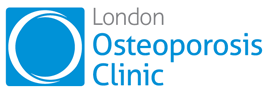Introduction
In recent years, bone health has gained prominence in discussions surrounding overall well-being, and rightly so. A strong skeletal structure forms the foundation for an active and healthy life. However, there’s one aspect of bone health that often remains overlooked – its significance during pregnancy. In this blog post, we’ll explore the story of Yaasmeen, a young mother who faced a rare condition during her pregnancy, Pregnancy and Lactation Associated Osteoporosis. Her journey highlights the pressing need for more bone health literacy among expectant mothers.
Yaasmeen’s Journey
Yaasmeen, a 33-year-old residing in Yorkshire with her husband and baby, Aaliya, was in good health leading up to her pregnancy in 2019. Like many expectant mothers, she experienced discomfort and pain in her lower back during pregnancy, attributing it to the rigours of carrying a child. She underwent two epidurals during labour, expecting the pain to subside after childbirth. Unfortunately, the discomfort in her lower spine didn’t fade away; it intensified to the point where it hindered her daily activities.
Yaasmeen recalls, “The pain in my back was gradually increasing each day, stopping me from performing basic tasks that mothers need to do. I couldn’t walk around the flat, hold my baby, or even feed her without experiencing excruciating pain. It was a distressing experience.”
One fateful day, as she was returning home with her baby in her arms, she suddenly felt unbearable pain, as if her entire weight was about to give way. She staggered into her flat and collapsed on the floor, leaving her phone and belongings in the hallway. It took her nearly 45 minutes to regain her composure and seek help. This incident marked a turning point in Yaasmeen’s struggle with unexplained pain.
Misdiagnosis and Frustration
Yaasmeen reached out to her general practitioner (GP) seeking relief from the persistent back pain. However, her GP initially dismissed her symptoms as normal post-pregnancy discomfort and suggested back exercises. To her dismay, these exercises only exacerbated her condition. The situation escalated when, a day before her brother’s wedding, she sneezed and experienced excruciating pain, rendering her unable to sit up properly.
Seeking help, she visited a local hospital, but her condition was again attributed to the recent childbirth. They recommended over-the-counter pain relief medication. That night, at her brother’s wedding, the pain worsened to the extent that she couldn’t bear her own body weight. She collapsed but managed to make it home, unable to perform even the most basic tasks, including using the restroom.
Yaasmeen’s mother had to call an ambulance as her condition deteriorated rapidly. Paramedics attempted to help her stand, but she couldn’t. It was only after receiving morphine and further examination at the hospital that the severity of her condition became apparent. She had five spinal fractures, and one more could have left her unable to walk for life.
The Turning Point: London Osteoporosis Clinic
After a week in the hospital, the medical team decided on a treatment plan that included a back brace, a bisphosphonate, Alendronic Acid. However, concerns about potential side effects, including cancer and infertility, led Yaasmeen to refuse this treatment. Her determination to find an alternative solution was unwavering.
In search of specialised help, Yaasmeen scheduled an online consultation with Dr Taher Mahmud, a Consultant Rheumatologist and Founder of The London Osteoporosis Clinic.
Dr Mahmud recalls their first interaction, saying, “Yaasmeen was in acute pain, and her symptoms were significantly affecting her daily life. We needed a comprehensive solution that not only addressed her pain but also the root cause of her condition.”
A DEXA scan revealed that Yaasmeen’s bone density was alarmingly low for her age, at minus 2.7. Dr Mahmud diagnosed her with Pregnancy and Lactation Associated Osteoporosis, a rare condition characterised by severe bone loss during and after pregnancy.
Pregnancy and Bone Health
Pregnancy and lactation can lead to significant bone loss in women. On average, women lose around 5% of bone mass during pregnancy and an additional 5% for every six months of breastfeeding. This cumulative loss can have a profound impact on bone health.
The Treatment Journey
Under Dr Mahmud’s guidance, Yaasmeen embarked on a comprehensive treatment journey. The plan aimed to prevent further fractures, promote new bone growth, and alleviate her pain. Lifestyle changes, regular anabolic injections, physiotherapy, and support from her family formed the foundation of her recovery.
Over two years, Yaasmeen’s bone density improved to a healthy minus 1.12, a significant recovery. Equally important, she was no longer in constant pain and gradually regained her strength, allowing her to become more involved in caring for her daughter, Aaliya.
Yaasmeen reflects on her journey: “It required commitment and dedication, but I was determined to regain my life. I followed the treatment plan meticulously, making mindful choices in my diet and exercise routine. My family’s support and the London Osteoporosis Clinic team’s expertise were invaluable.”
Conclusion
Yaasmeen’s story highlights the critical need for increased bone health literacy, especially among expectant mothers. Pregnancy and lactation can place significant stress on a woman’s skeletal system, and understanding the potential risks and preventive measures is essential. Dr Taher Mahmud and The London Osteoporosis Clinic played a pivotal role in Yaasmeen’s journey toward better bone health, emphasising the importance of specialised care and comprehensive treatment plans.
In a world where other health concerns often overshadow bone health, Yaasmeen’s experience serves as a powerful reminder of the need to prioritise bone health, especially during life’s pivotal moments like pregnancy.

